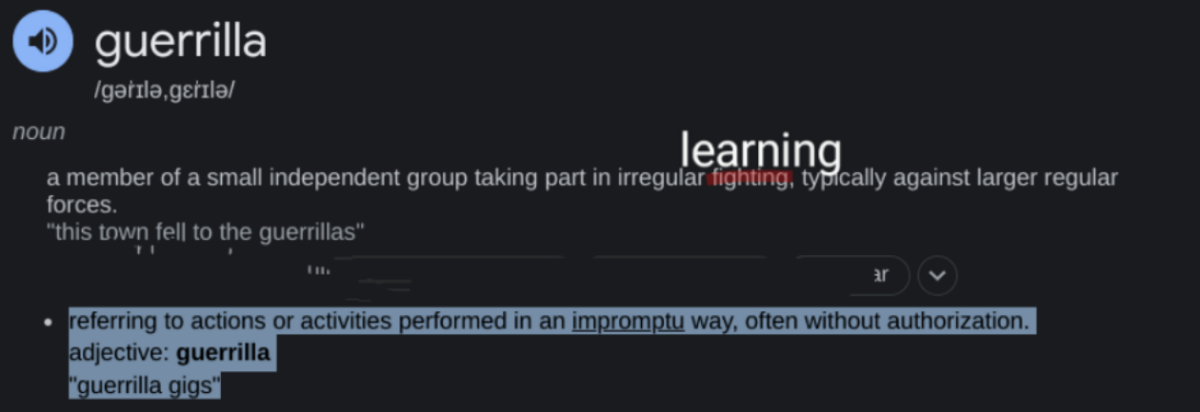So, to get started, I have chosen something I chanced upon in a newspaper. A UK university is celebrating the fact that they are going to be using holograms for lecturers.
Continue reading “To get started… Hologram teachers”Category: Uncategorized
Introduction to the learning approach
Posthumanism: changing times and self-understanding
Place
The learning will be conducted through face-to-face meetings and this hub of communication.
Context
The human being understands itself as an individual agent and perhaps unique amongst things in that it originates action and is a source of value.
This modern self-understanding supports and maintains our theories of justice and rightness (who is to blame?), labour (who produced what?), property (who owns what?), intellectual property (essay writing, artistic creation), talent (who deserves what?), family (genetic choices for offspring), politics (who rules me?) and sports (who deserves to win?).
However, this certainty in one’s own place is weakening with the emergence of new technologies and new understandings. Human modifying technology (HMT) impacts (our) “self-understanding” against contexts of technology and changing interests. The main enhancements leading to transformation are genetic, morphological, pharmacological, robotic, intellectual and social and the main effects will be on:
Continue reading “Introduction to the learning approach”Categorical imperative
Practical reason is a theory of imperatives (see GMM 4:414-415). There are three types of imperatives:
Continue reading “Categorical imperative”Autonomy
Implicit in Kant’s reasoning and philosophy is a fundamental refrain: desires are phenomenal and act upon the phenomenal self, obeying the law of causality, which is a normal law of nature. As such, the phenomenal self is not free; it is the noumenal self which is free: the will and its activity as spontaneous and self-caused. Therefore, the ends of the activity (the purpose; the effect) cannot hold any moral worth from the phenomenal perspective (it is an inappropriate description of the object). Any law the will produces must be represented to itself and then acted upon from a sense of duty. For such a law to be absolute, without limitation and unconditional, it must be universalizable.
Continue reading “Autonomy”Ideology
The economic structure of a society, the material conditions of existence, is its base. The value systems, ways of life and institutional political structures (in a superficial sense) are its superstructure. The superstructure of characteristic class feelings, ways of thinking, myths, etc, serve its members as the believed conscious motives of individuals, but it is in fact class that determines action. Reason in this superficial sense belongs to the superstructure. I think I act from self-interest, but egoism actually perpetuates the capitalist mode of production; I think I act from religious duty (my personal bond with God, piety), but this in fact perpetuates the feudal economic system. When the intellectuals of a class produce a value system (religion, metaphysics, ethics, etc.) for these feelings, beliefs, it becomes ideology. The correct explanation of the existence of values is IDEOLOGY.
Continue reading “Ideology”Capitalism
Capitalism is best defined as embodying two economic features:
(1) the free market; and
(2) the institution of private property.
To use something is to give it the predicate of mine. However, under a system of private property, nature already belongs to someone. How does this odd situation arise?
Continue reading “Capitalism”Alienation
The “critical tendency” and “law of development” of capitalism is to divorce the means of production from labour (to mechanise) and to concentrate the means of production into large groups and so transform labour into wage-labour (replaceable: a commodity in competition with other commodities) and the means of production into capital (viz. investment). However, the more it does so, the less surplus value is generated and the less the workers are paid. Hence, the revolution of the working class is inevitable because its interests become the motor of change: the more he works, the less he receives.
Continue reading “Alienation”Changing
The golden age and changing the world
Those of you interested in new ways to resist or change the world might be interested in this. Political philosophy is awash with original positions, states of nature and golden ages. What if such a state were a future to regulate actions? Utopian thinking seems to have fallen out of our intellectual vocabulary.
Shame, next stop is, after all, Mars…
Cruel Santa and killer seals
If Santa is a bad boy who keeps his presents back? I was just told that a couple of farms that increase their income by being Christmas winter lands have come under criticism for the treatment of reindeer. They are worried about reprisals from animal activists. Oddly a story in the Telegraph goes the other way: showing how seals may commit harm. But would they be doing wrong? If animals are to be treated as moral patients, should they — are they — also moral agents?

